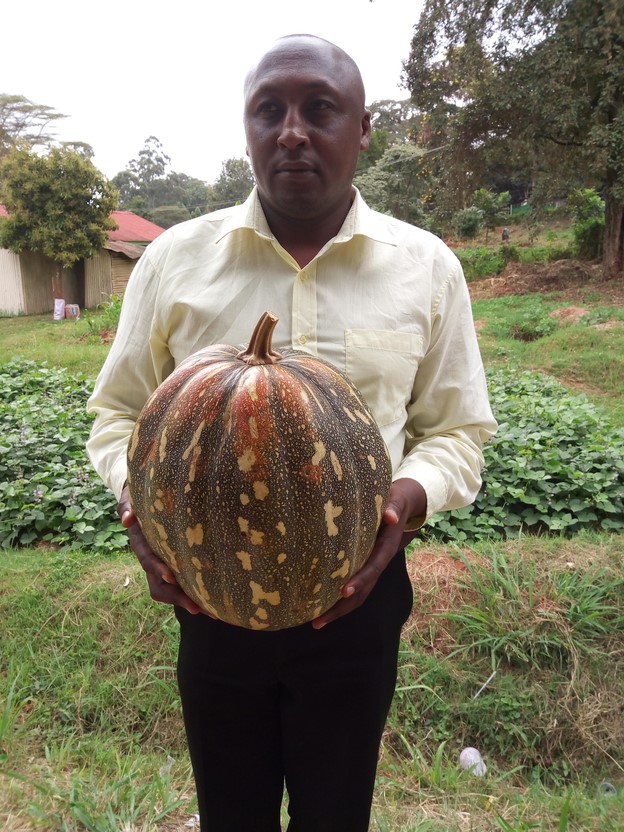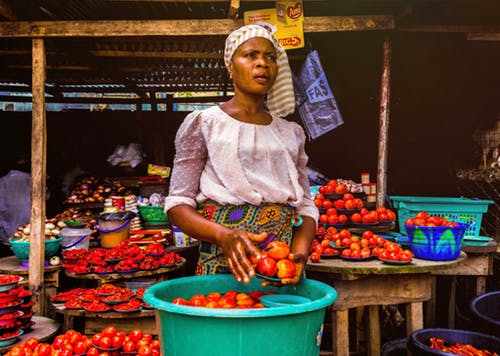 By Fredrique Achieng
By Fredrique Achieng
Kenya's horticultural sector has been thrown into disarray as producers compete for air cargo space, following the suspension of flights to major export areas in Europe (EU).
The overall number of flights coming into the country from key horticultural export markets, such as Amsterdam and London, has suddenly fallen from 14 flights a day to six, as foreign airlines have discontinued services, with foreign travelers banned and no facility for their air crews to stop over.
But with flights suspended, the options for air cargo have fallen by more than half, for an industry that earned Kenya over Sh153bn last year, as the country’s third largest foreign exchange earner.
Magdalene Were is one of many exporters now copping sudden losses, as she sits with nine tonnes of fresh produce, worth Sh11m, that was due to be exported, but is now sitting rotting. "The virus has hurt the horticulture sector even though it has not yet hit the country as hard as other areas in the world. My consignment that was set for Rotterdam, which had a variety of products ranging from flowers and fruits, is now going to go to waste", she said.
An average plane carries at least 50 tons of cargo per travel, worth typically Sh60m or more for exporters. The sudden drop in the number of flights to and from the “is a worrisome situation for us in this industry because it creates more problems for us than not exporting our products: we will also not be able to receive farm inputs that help with the growth of our produce in the farms," said Magdalene, who is a member of the Kenya Flower Council.
With major export destinations in Europe having now banned entry to foreign passengers, and also banned events and closed bars and restaurants, sales are anyway plummeting. But consumers across Europe are still visiting and buying from their grocery stores and supermarkets.
“Most growers understand the situation on the ground and most of them are in close contact with their clients. This makes both the clients and farmers understand each other. Many shops are closing down and flights are being cancelled, which, therefore, means orders are not reaching in the destination in time, ruining them, or just not reaching their destinations at all," said Magdalene.
Local farmers are also rapidly running out of farm inputs, such as imported pest control products, that help their farm inputs meet the requirements for international markets.
"Farmers normally have a stockpile of not more than a month's inputs - this is because of the high prices they go for," adds Magdalene. "For our European market, flowers are normally on high demand, due to their culture. They always find a reason to give a bouquet or even just one flower and with a lot of cancellations this means low business,".
Said Faith Mueni, a flower farmer in Naivasha: "Millions of sales are being lost and there is nothing much that we can do about it. The challenge comes when we have to get the destination to redirect our products to other markets. This is because most markets that we are redirecting our products to already have a surplus, meaning our products are going to rot.
" The simultaneous flight cancellations and order slowdowns are also effecting fruit and vegetables, which are also not getting through to the European food stores.
There are reports of government talks to review ways of reactivating additional cargo flights, but without any intervention the damage for exporters is set to be crippling. The International Air Transport Association (IATA) reports the airline industry is set to lose at least $29bn worth of flights across lost cargo and passenger revenues.
Economist Lilian Wangari explains that the main reason countries are facing such difficulties is because of the degree of global interdependence generated by world trade.
With factories sending workers home and closing down as a result of the virus, some farm inputs will also run out. However, these are now likely to become available in Kenya long before there is an overall global shortage, if flights remain suspended.
Write comment (0 Comments)



 Some of the country’s pumpkin farmers are solving the problem of too much competition in the market, as smallholders have raced into pumpkin production, by buying or hiring processing machines to make oil and flour from the fruit, earning them far more than before and ending storage problems.
Some of the country’s pumpkin farmers are solving the problem of too much competition in the market, as smallholders have raced into pumpkin production, by buying or hiring processing machines to make oil and flour from the fruit, earning them far more than before and ending storage problems. The United Nations Industrial Development Organisation (UNIDO) is funding Sh425m for farmers' training across East Africa over the next three years to position more smallholders to export directly to the European Union.
The United Nations Industrial Development Organisation (UNIDO) is funding Sh425m for farmers' training across East Africa over the next three years to position more smallholders to export directly to the European Union.











